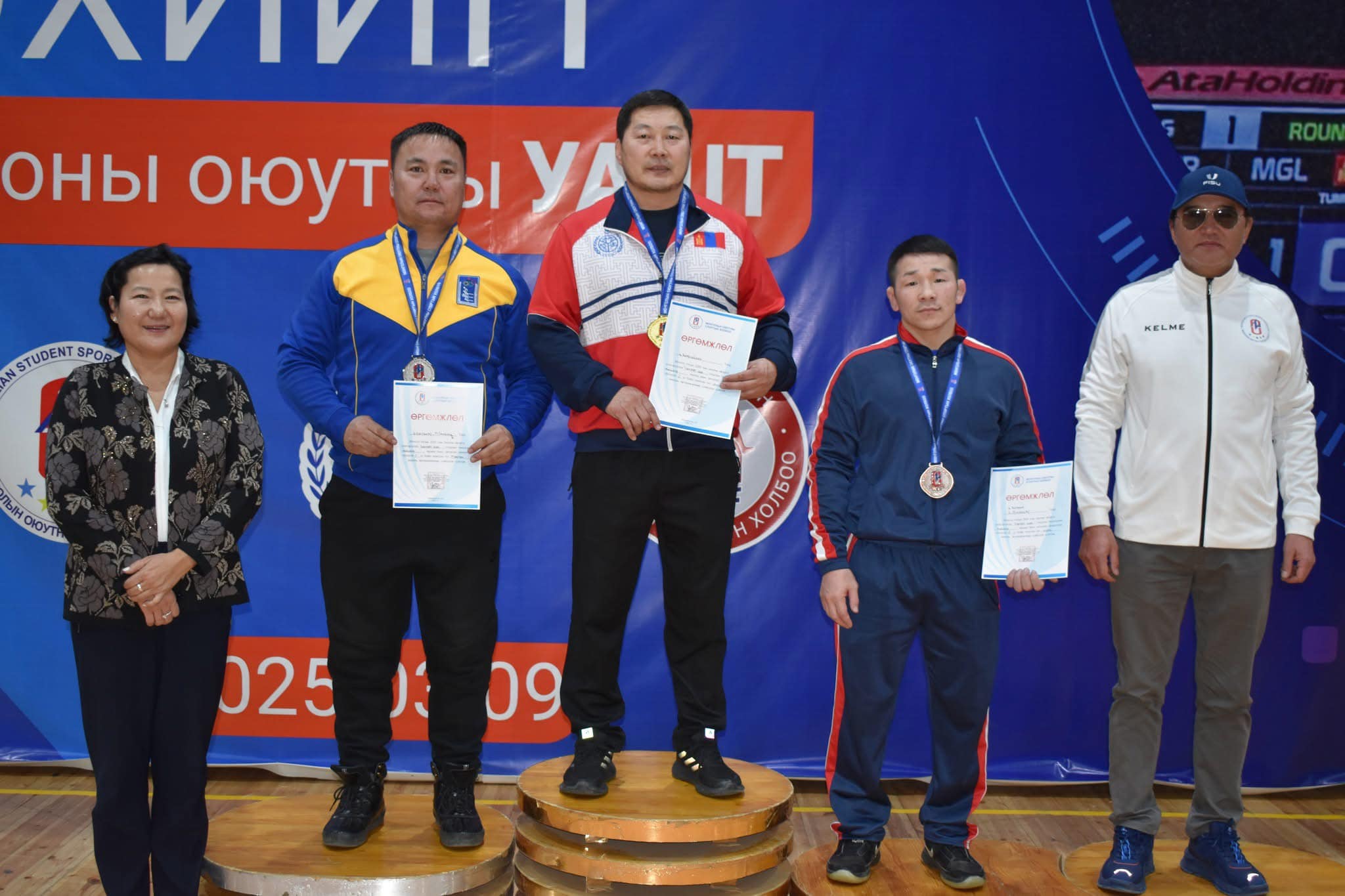Мэдээллийн сан
Мэдээллийн сан
МОНГОЛЫН ОЮУТНЫ СПОРТЫН VI НААДАМ ӨНДӨРЛӨЛӨӨ
Мэдээллийн сан
УНИВЕРСИАДЫН УУЛЫН ЦАНЫН ЭМЭГТЭЙЧҮҮДИЙН ТЭМЦЭЭН БОЛЛОО
Мэдээллийн сан
УРАН ГУЛГАЛТ-УНИВЕРСИАД НААДАМ
Мэдээллийн сан
Team Mongolia
Холбооны үйл ажиллагааны тухай
Оюутны универсиад
Монголын оюутны спортын "Универсиад" наадам нь 2 жил тутамд нэг удаа сондгой тоотой жилд МОСХ-ноос эрхлэн холбогдох байгууллагуудтай хамтран зохион явуулдаг....
Оюутны УАШТ
Тэмцээнд 15 их, дээд сургуулийн эрэгтэй 17, эмэгтэй 12 багийн 350 гаруй оюутан тамирчид оролцон хурд хүчээ сорин өрсөлдөж аваргуудаа тодруулсан бөгөөд, Монгол...
Гадаад арга хэмжээ
Staged every two years in a different city, the winter edition of the FISU World University Games is a celebration of international university sports and culture...
Үйл ажиллагаа
МОСХ нь "Оюутны спорт, Универсиад" наадмын чиглэлээр төрөл бүрийн сургалт, семинар, эрдэм шинжилгээний хурлыг жил бүр төв, орон нутагт зохион байгуулан багш...




.jpg)


.jpg)
.jpg)
.jpg)
.jpg)

.png)
.png)

.png)
